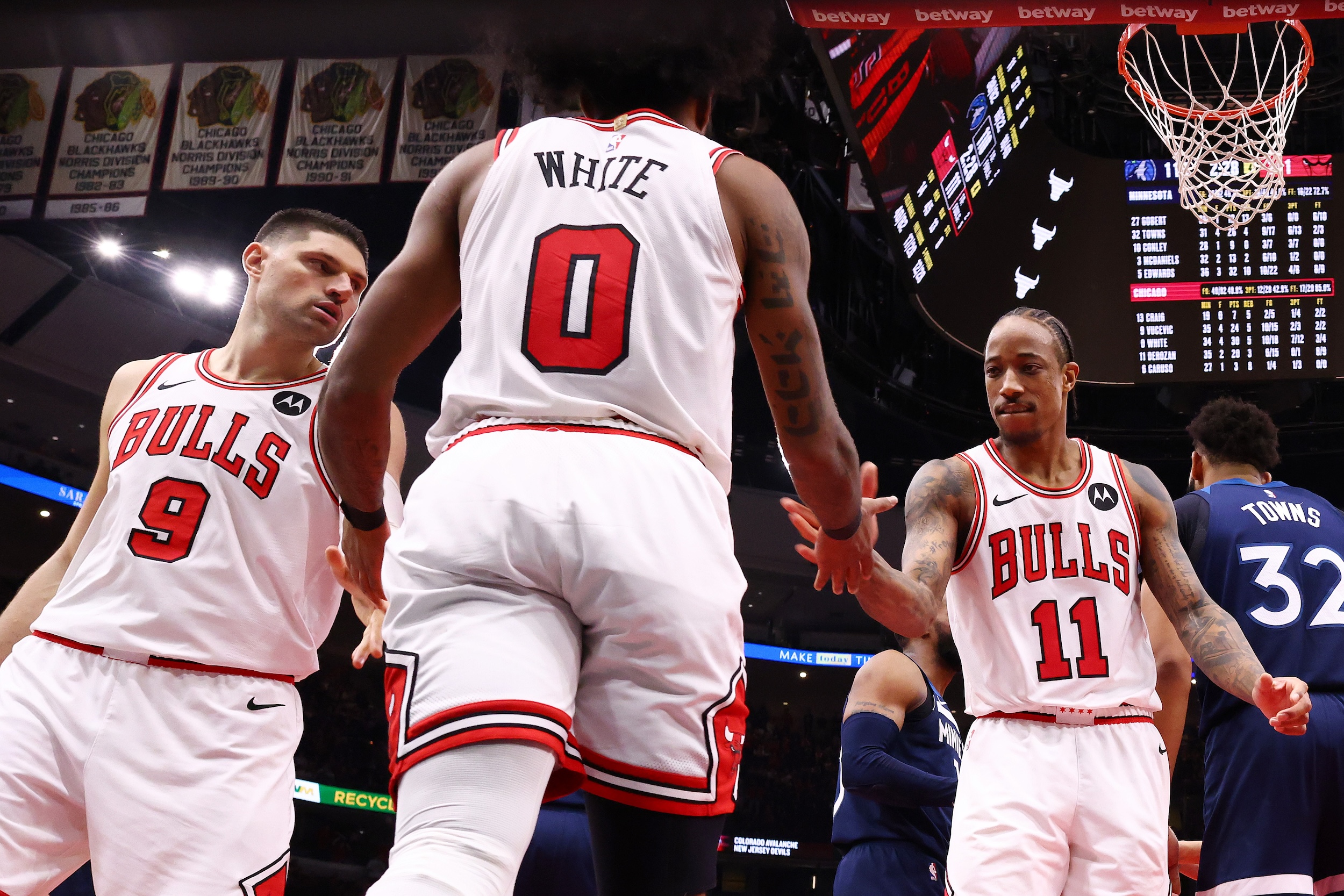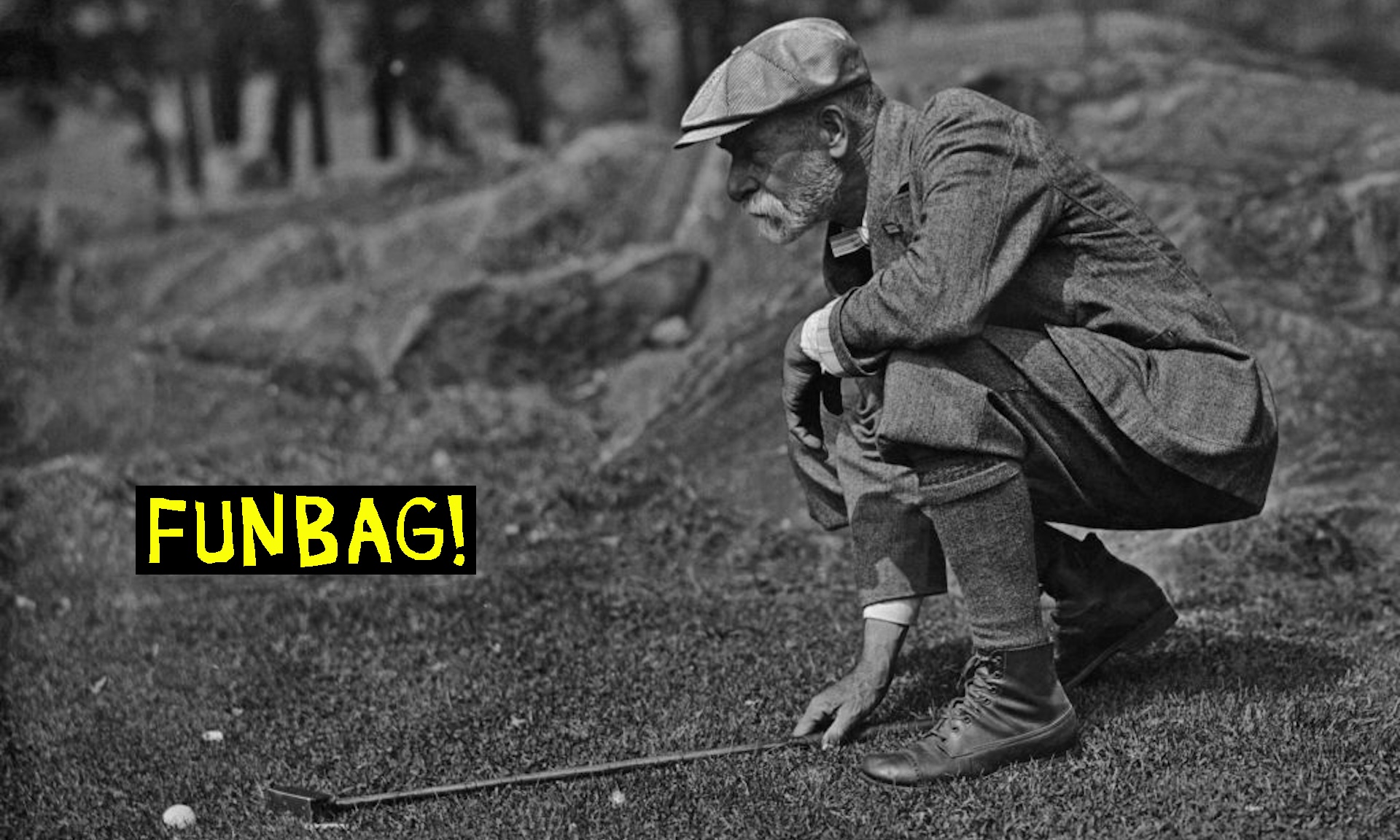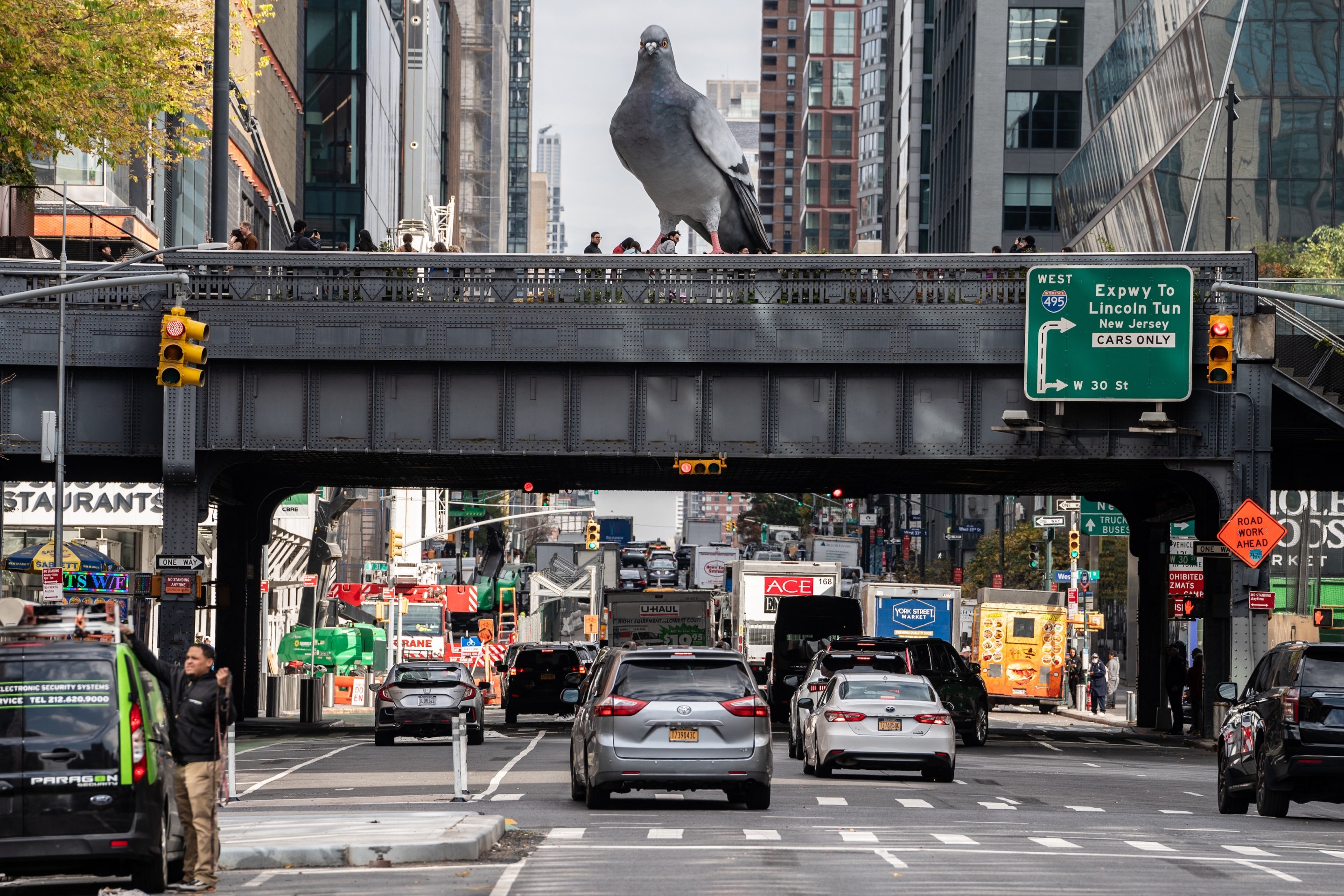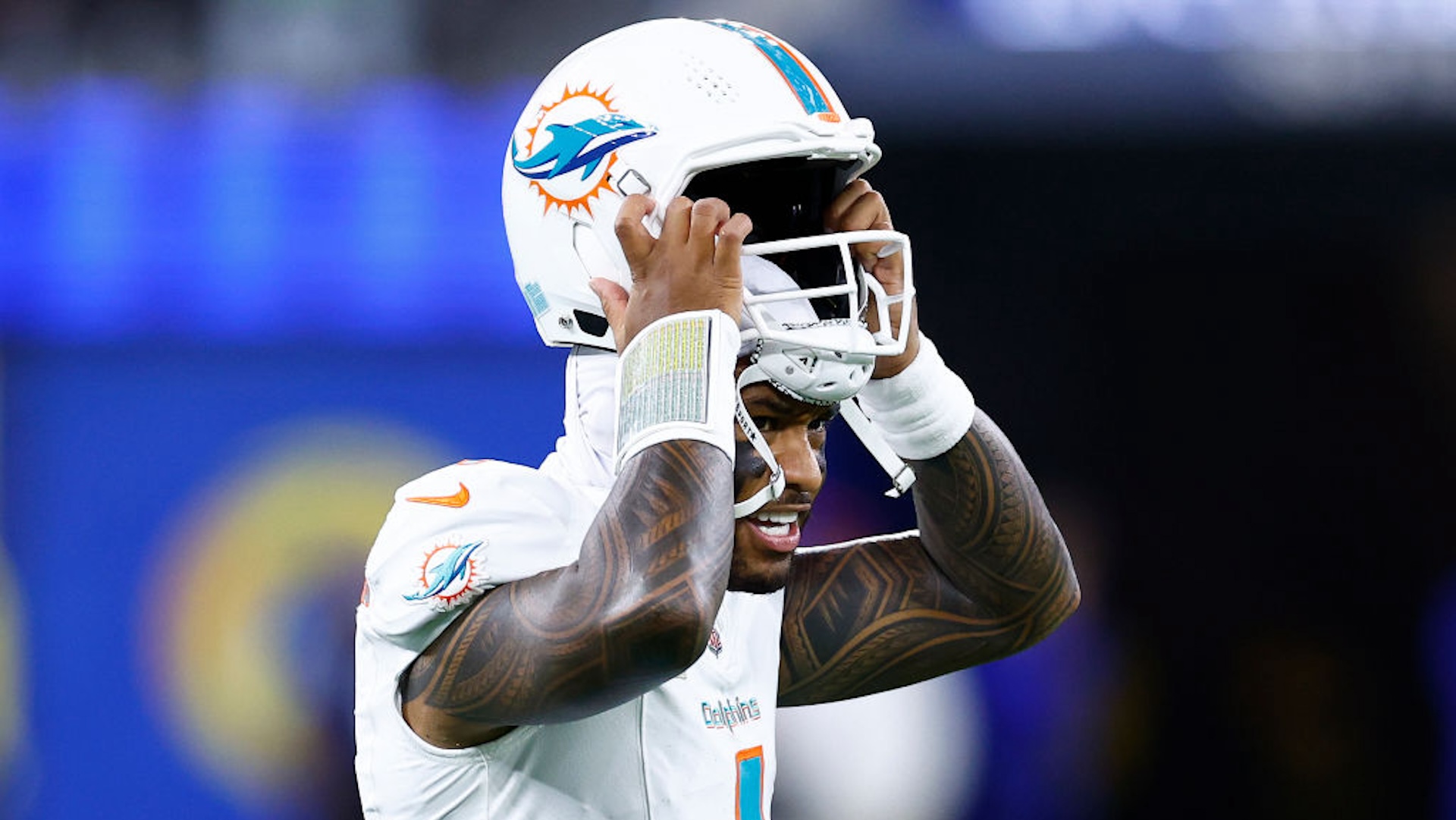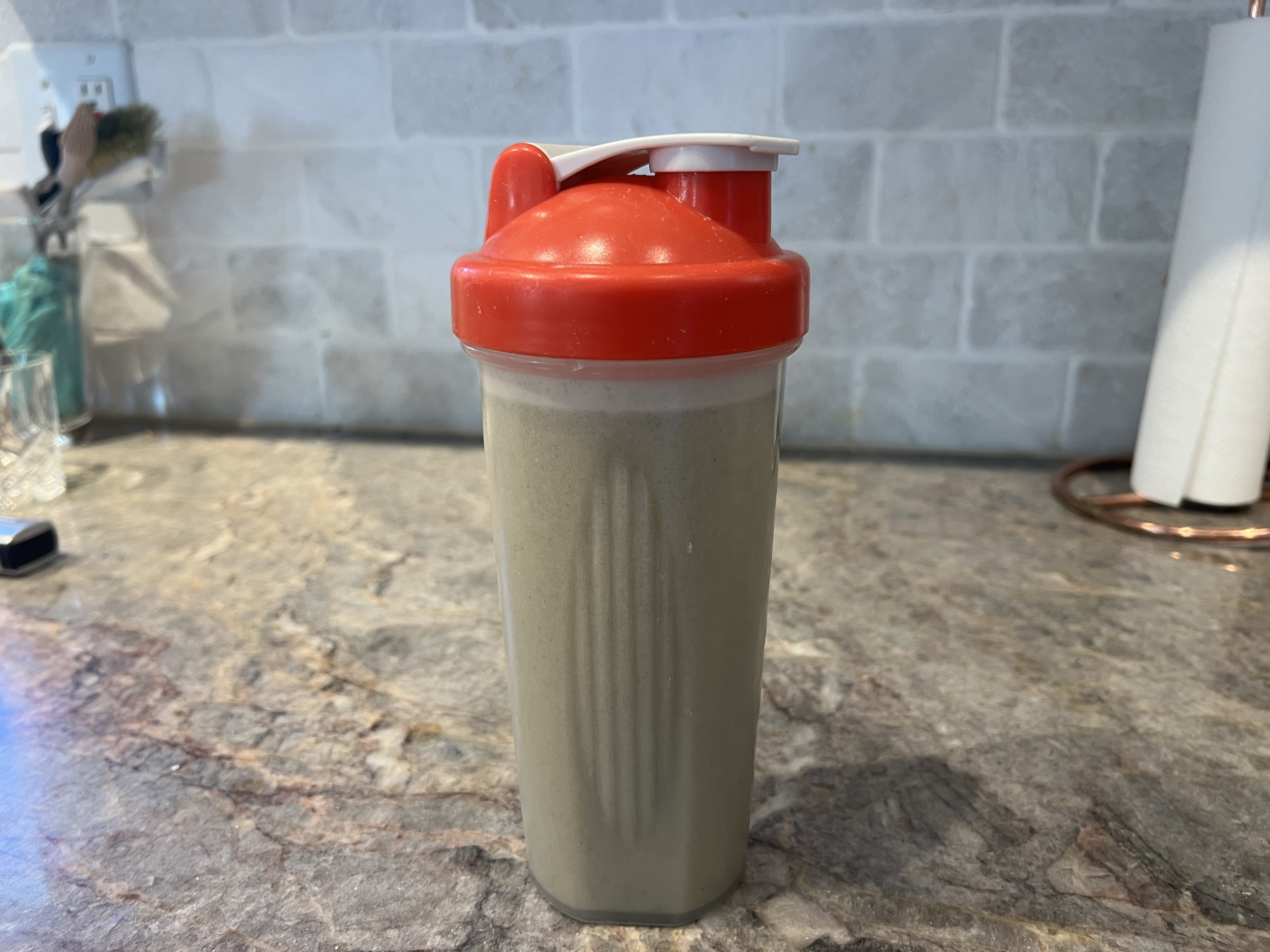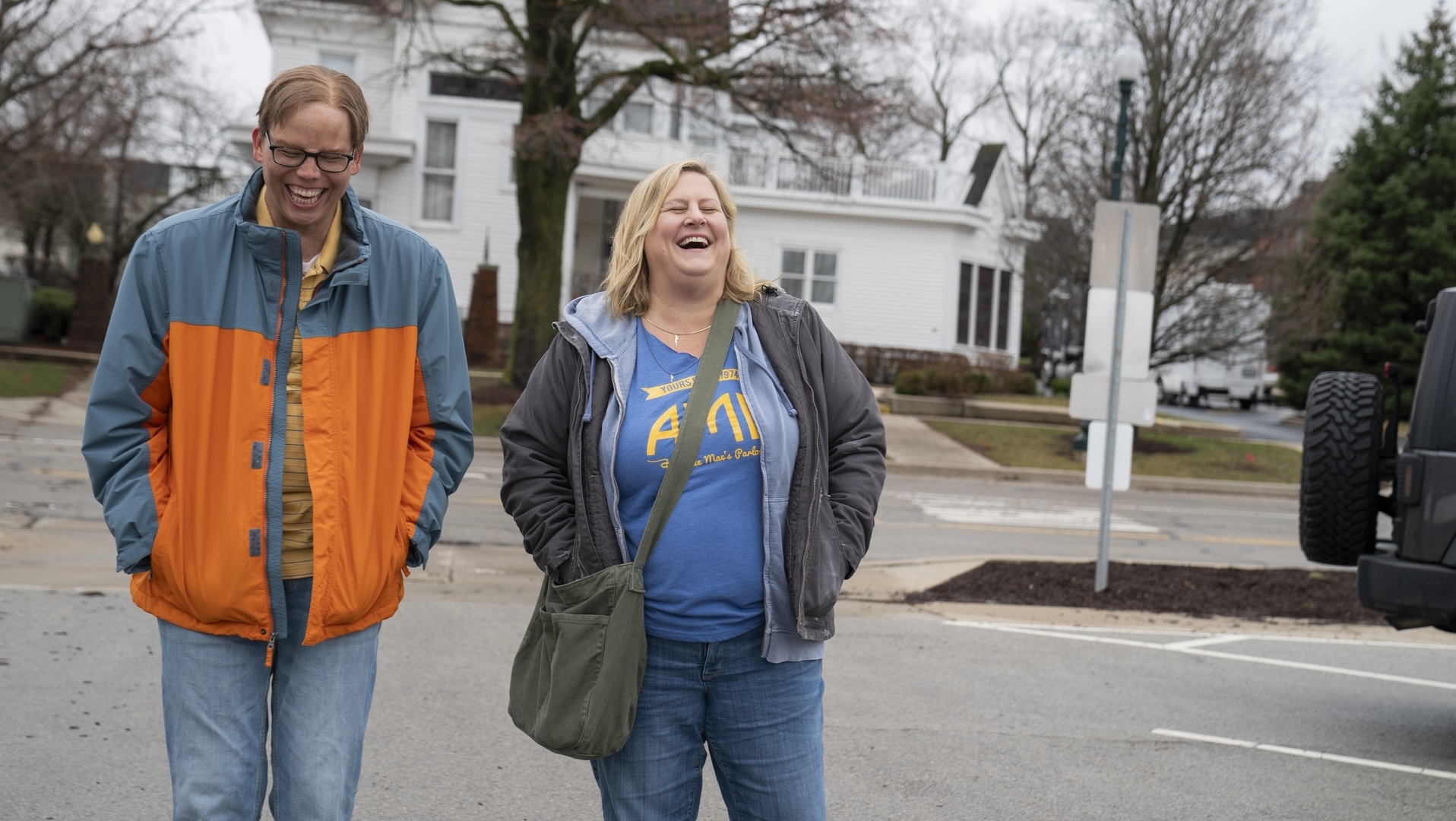The Chicago Bulls declined, for the third year running, to make any moves ahead of the NBA trade deadline, which came and went with little sizzle and even less steak Thursday afternoon. They had some options—other teams with more serious ideas about moving up in the world were hoping for a Bulls sell-off—but chief personnel honcho Arturas Karnisovas, architect of Chicago's unsatisfying present, is fond of the bird in hand, even if that bird is one of the grody ones, like a starling, and even if that starling is mostly dead, having recently been swallowed and regurgitated by, I don't know, a dyspeptic coyote.
The Bulls stink. Since Lonzo Ball's knee dissolved into a putrid slime in early 2022, the Bulls have gone 85–95 in regular-season games. Last season they sat out the trade deadline, immediately lost five straight to drop to 11th in the Eastern Conference, recovered only enough to grab the final spot in the play-in, and were then dispatched by the Miami Heat to finish a maddeningly frustrating campaign short of a second consecutive playoff appearance. So far this season, they are 25–27; since the second week of the season, they have never risen higher than ninth in the East. According to Cleaning The Glass, the Bulls have the league's 22nd-ranked offense and the league's 16th-ranked defense, by points per possession. Last season this same core played this same basketball—better defensively, worse offensively, but the same stew of mediocrity. This is not a team that appears at all primed to explode up the standings, not without some other teams above them kerploding their way in the opposite direction.
Bulls fans would certainly prefer a better basketball team, but the opportunities aren't always there, even if nothing on your roster is particularly sacred. "If you look at every option that was out there to improve your team, we didn’t see anything that was going to make us better,” explained Karnisovas Thursday, soon after the Bulls reached the decision that no deals would come together. Other teams were interested in Chicago's guys: Golden State reportedly came asking about ace defender Alex Caruso, the 76ers reportedly poked around backup center Andre Drummond, and the Bulls reportedly fielded inquiries about 35-year-old DeMar DeRozan. Karnisovas wasn't interested in anything that would make his team at all worse, even just for the remaining 30 games of this regular season. "We want to stay competitive. We have an obligation to this organization, this fan base and this city to stay competitive and compete for the playoffs, and that’s what we’re doing."
"Competitive" is an interesting word choice. On a given night, the Bulls can, uhh, compete a lot better than can, say, the Washington Wizards. That's not nothing: A fan of the Bulls who buys a ticket to a home game has a much better chance of watching a competitive contest than does a fan of the Charlotte Hornets. When I turn on a game featuring one of my teams, it is better for me if I think they have a reasonable shot at winning. Spun out over the length of multiple consecutive regular seasons, though, you want to gain a sense that the project is headed in some reasonably clear direction; eventually, if it's not going to be much better, it can at least do me the solid of becoming different. This project is now in its third year, and Bulls fans can be reasonably sure that this team with this core is going to win something like half of its games, is going to play in more-or-less the same style with the same main dudes, and is going to factor really not at all in the big plotlines of the sport. It gets pretty boring! This is, after all, supposed to be entertainment; beyond a certain point, stability in mediocrity turns the live games of a professional basketball team into something like syndicated reruns.
Last season the Bulls held pat and floated through a dismal second half, and then in the summer they retained 33-year-old center Nikola Vucevic on a three-year contract extension that will take him into the twilight of his career. This season they held pat again, and now Karnisovas is talking about re-upping with DeRozan, who has already outlasted expectations by remaining a semi-viable Kobe-scented alpha-scorer type into his mid-30s. "He's been great for our young guys, has been our closer," Karnisovas said. "I think it's wonderful for this team. I think when the time comes, we have a chance to keep him." The Bulls reportedly made some effort to find a new home for Zach LaVine, by reputation and paycheck their closest thing to a superstar, but without much luck, and anyway that idea was nuked when LaVine opted for season-ending surgery this month. LaVine is grumpy as a Bull, but Karnisovas says that's a relationship that is otherwise in fine shape. "I think Zach wants to win, and bottom line is we’re a better team with Zach on the team," he said Thursday. He's mostly wrong about that, but as the moment to do anything about it has passed, it's a fiction that will go over much more smoothly than the truth.
You've heard of the treadmill of mediocrity. It's the idea that an NBA team can rise or slide into the league's dreary middle class—approximately the play-in zone, nowadays—and become stuck. Without a superstar to lift a team out of mediocrity, it will never really contend in any serious way, but without dropping down to the bottom of the standings it will never have a shot at the top talents served up in a player draft, and thus miss out on the NBA's preferred way of distributing future superstars. Climbing from bad to mediocre, the theory goes, is much easier than climbing from mediocre to good. A bad team can spread some money around in free agency or some draft picks around in trades and all but decide to rise into mediocrity; once you're there, though, rising further isn't really a choice so much as it is a matter of luck, of overlapping best-case-scenario outcomes from decisions made, in many cases, years prior. If self-determination is your thing, really the only choice left to a mediocre team is to become bad again; everything else is hoping for a lightning strike.
Whether this describes anything inherent in NBA team-building (maybe your mediocre team's GM is just really shitty at his job) it does tend to describe how teams orient themselves as they settle into their conference's unhappy middle. Personnel types look around for parts that can help them ascend or for opportunities to parachute out of the winning business. The Bulls are now the only team in the NBA not to have made any trades within a week of the trade deadline in any of the past three seasons, per ESPN. You would expect something like that to be true only of a team that has shown that it is poised to compete for the championship each season. You would not be totally surprised if it were true of a team that had already done the ugly deliberate work of cannonballing into the toilet, and was now content to lose a lot and use up high draft picks and bide its time.
The Bulls are an odd case in that they are making no evident effort to move in any direction. A treadmill is exercise equipment; even if you're not moving forward you are at least working. This is more of a sitting-perfectly-still-on-the living-room-sofa of mediocrity. The idea has some appeal: They may not be getting anywhere, but at least they're also not trying. You can't really call it a failure, can you?
